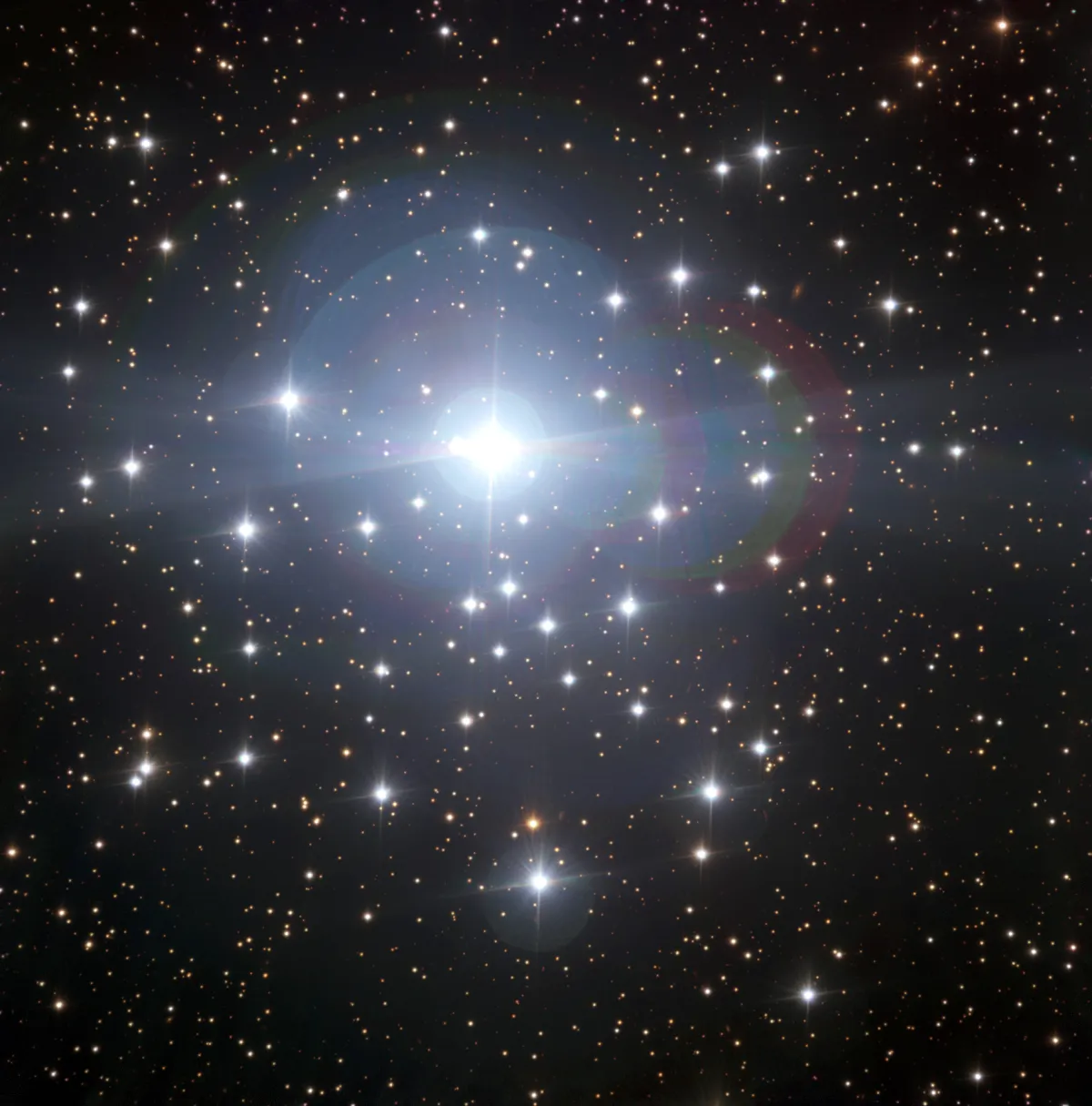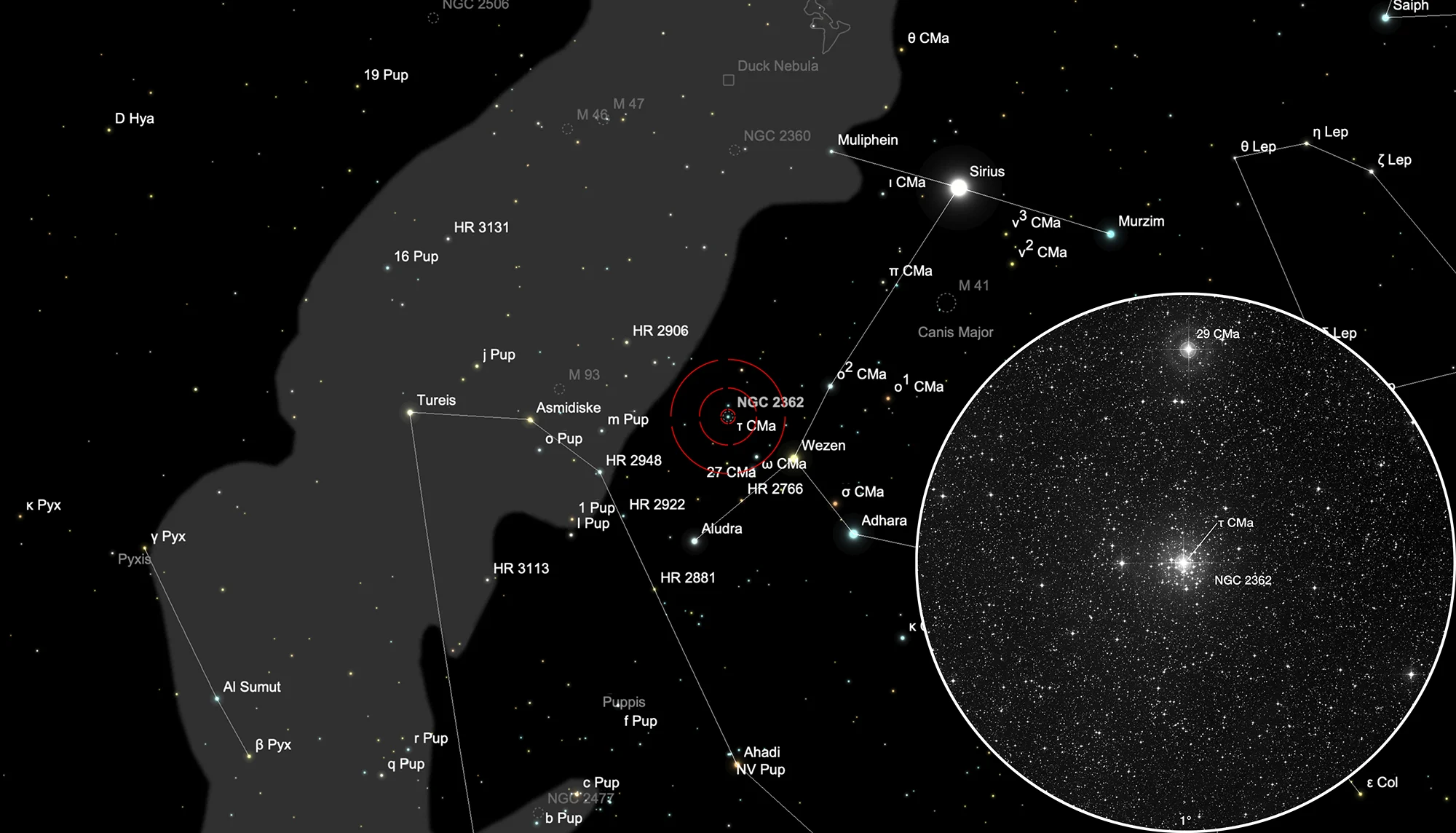Tau Canis Majoris Cluster (NGC 2362)

History
This open cluster was first mentioned in 1654 by the Italian court astronomer Giovanni Batista Hodierna. William Herschel observed it on 4. March 1783 and catalogized it as VII 17. He noted: «A very beautiful cluster of pretty large stars, very rich. Contains the 30 Canis» [277, 463]
Physical Properties
NGC 2362 is a richly populated galactic cluster, where all the natal molecular gas and dust had been blown away. The age of the cluster is estimated to 5 million years. NGC 2362 is dominated by the 4.4 mag bright, multiple star τ CMa, which is of spectral type O9 Ib, as well as several dozen unevolved B-type stars. Throughout the cluster several hundred suspected intermediate and low-mass pre-main sequence members can be found. Ground-based near infrared and Hα emission surveys of NGC 2362 concluded that most (∼90 %) of the low-mass members have already dissipated their optically-thick, inner (<1 AU) circumstellar disks. [579]
The giant H-II region Sharpless 310 (Sh 2-310), which appears as an incomplete ring of about 8° in diameter is associated with the cluster NGC 2362. The gas is ionized by the stars 29 CMa, τ CMa, and the early B-type members of NGC 2362. [580]
| Designation | NGC 2362 |
| Type | OCL (I3p) |
| Right Ascension (J2000.0) | 07h 18m 41.4s |
| Declination (J2000.0) | -24° 57' 15" |
| Diameter | 6 arcmin |
| Visual magnitude | 3.8 mag |
| Metric Distance | 1.389 kpc |
| Dreyer Description | Cl, pL, Ri (30 Can maj) |
| Identification, Remarks | WH VII 17; h 441=3077; GC 1513; OCL 633; ESO 492-SC9 |
Finder Chart
NGC 2362 is located in the constellation Canis Maior. The best time for observation is in the months from November until February.
Visual Observation
762 mm Aperture: The 2 to 3 magnitudes brighter star Tau Canis Majoris lies in the centre of the cluster NGC 2362. Loosely and evenly distributed are the members of the cluster, which contains two groups of stars of different brightness by one magnitude. Of which the fainter group is rather in minority and intermingles with the brighter ones. The geometry of the cluster is a rectangle. — 30" SlipStream-Dobson f/3.3, Hasliberg, 14. 2. 2023, Eduard von Bergen
